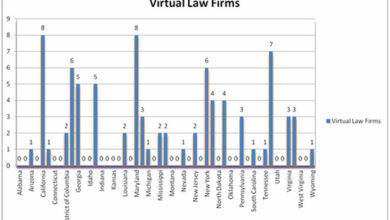How Lawyers Can Help in Personal Injury Cases
Personal injury cases can be complex and overwhelming, especially for individuals who are already dealing with the physical and emotional aftermath of an accident. In such situations, seeking the assistance of a skilled personal injury lawyer can make a significant difference in navigating the legal process and obtaining fair compensation. Lawyers specializing in personal injury cases possess the necessary knowledge, experience, and resources to effectively represent their clients’ interests. In this article, we will explore how lawyers can help in personal injury cases and the various ways they can make a positive impact on the outcome of these cases.
Understanding Personal Injury Cases
Before delving into the role of lawyers in personal injury cases, it is essential to have a clear understanding of what constitutes a personal injury case. Personal injury cases arise when individuals suffer harm or injury due to the negligence, recklessness, or intentional actions of another party. These cases encompass a wide range of accidents, including car accidents, slip and falls, medical malpractice, product defects, and workplace injuries.
When pursuing a personal injury case, the injured party (known as the plaintiff) must prove that the defendant’s actions or negligence caused their injuries and that the injuries resulted in damages such as medical expenses, lost wages, pain and suffering, and emotional distress. This burden of proof can be challenging to meet without the expertise of a personal injury lawyer.
The Role of Lawyers in Personal Injury Cases
Personal injury lawyers play a crucial role in advocating for their clients’ rights and pursuing the compensation they deserve. Here are some ways in which lawyers can help in personal injury cases:
1. Legal Expertise and Knowledge
Personal injury lawyers have in-depth knowledge of personal injury laws, regulations, and precedents. They understand the nuances of these cases and can navigate the complex legal system on behalf of their clients. By leveraging their expertise, lawyers can build a strong case and identify relevant laws and regulations that apply to the specific circumstances of the injury.
2. Case Evaluation and Investigation
Lawyers specializing in personal injury cases are skilled in evaluating the merits of a case. They can assess the strength of the evidence, identify potential legal issues, and determine the best course of action. Lawyers also have access to a network of investigators who can gather additional evidence, interview witnesses, and reconstruct accidents if necessary. This thorough investigation strengthens the case and increases the chances of a favorable outcome.
3. Negotiating with Insurance Companies
Insurance companies often play a significant role in personal injury cases, as they are responsible for compensating the injured party. However, insurance companies are primarily focused on minimizing their payouts and protecting their bottom line. Personal injury lawyers are skilled negotiators who can level the playing field and advocate for their clients during settlement discussions. They have experience dealing with insurance adjusters and can navigate the tactics used by insurance companies to undervalue or deny claims.
4. Determining the Value of the Claim
Calculating the value of a personal injury claim involves considering various factors such as medical expenses, lost wages, future medical costs, pain and suffering, and emotional distress. Determining the accurate value of a claim requires an understanding of both the immediate and long-term impact of the injury. Personal injury lawyers have experience in assessing the value of claims and can ensure that their clients seek fair compensation for their losses.
5. Legal Representation in Court
If a personal injury case proceeds to trial, having a lawyer by your side is invaluable. Lawyers are skilled litigators who can effectively present arguments, examine witnesses, and cross-examine the opposing party. Their courtroom experience allows them to navigate the complexities of the legal process and present a compelling case to the judge and jury.
Benefits of Hiring a Personal Injury Lawyer
Now that we have explored the role of lawyers in personal injury cases, let’s discuss the benefits of hiring a personal injury lawyer:
1. Increased Chances of Success
Personal injury cases can be challenging to navigate without legal representation. Hiring a lawyer significantly increases the chances of success by leveraging their expertise, experience, and resources. Lawyers know how to build a strong case, gather evidence, and present compelling arguments to maximize their clients’ chances of obtaining fair compensation.
2. Peace of Mind
Dealing with the aftermath of an accident can be emotionally and physically draining. Hiring a personal injury lawyer allows individuals to focus on their recovery while knowing that their legal matters are being handled by a professional. Lawyers handle all aspects of the case, from gathering evidence to negotiating with insurance companies, providing their clients with peace of mind during a challenging time.
3. Access to Resources
Personal injury cases often require resources such as expert witnesses, medical professionals, accident reconstruction specialists, and investigators. Lawyers have access to a network of professionals who can provide valuable insights and support the case. By leveraging these resources, lawyers strengthen their clients’ claims and improve the chances of a favorable outcome.
4. Fair Compensation
Insurance companies are notorious for undervaluing or denying valid claims. Personal injury lawyers are familiar with the tactics employed by insurance companies and can prevent their clients from accepting inadequate settlement offers. Lawyers fight for fair compensation and ensure that their clients receive the financial support they need to recover and move forward.
5. Efficient Settlement Process
Personal injury cases can be time-consuming, especially when individuals attempt to handle them on their own. Lawyers expedite the process by handling all legal matters efficiently. They have experience with paperwork, deadlines, and court procedures, ensuring that the case progresses without unnecessary delays.
Frequently Asked Questions (FAQs)
1. How much do personal injury lawyers charge?
Personal injury lawyers typically work on a contingency fee basis. This means that they only receive payment if they successfully recover compensation for their clients. The fee is usually a percentage of the settlement or court award, and the exact percentage can vary depending on the lawyer and the complexity of the case.
2. How long does a personal injury case take?
The duration of a personal injury case can vary depending on various factors, including the complexity of the case, the extent of the injuries, and the willingness of the parties to reach a settlement. Some cases may settle within a few months, while others may take several years to reach a resolution.
3. What if I can’t afford a personal injury lawyer?
Many personal injury lawyers offer free initial consultations, allowing individuals to discuss their case without any financial commitment. Additionally, as mentioned earlier, personal injury lawyers often work on a contingency fee basis, eliminating the need for upfront payment. If the lawyer successfully recovers compensation, their fee is deducted from the settlement or court award.
4. What if the insurance company denies my claim?
If an insurance company denies your claim, it is crucial to seek legal representation immediately. Personal injury lawyers have experience in handling denied claims and can explore other legal avenues, such as filing a lawsuit, to pursue the compensation you deserve.
5. Can I handle a personal injury case on my own?
While it is possible to handle a personal injury case without a lawyer, it is not recommended. Personal injury laws are complex, and insurance companies have teams of experienced adjusters and lawyers working to protect their interests. Without legal expertise, individuals may risk undervaluing their claim or making critical mistakes that could jeopardize their case.
Conclusion
Personal injury cases require extensive legal knowledge, negotiation skills, and the ability to navigate a complex legal system. Lawyers specializing in personal injury cases provide invaluable support to individuals seeking compensation for their injuries and damages. From conducting thorough investigations to negotiating with insurance companies and representing clients in court, lawyers play a crucial role in ensuring fair outcomes. By hiring a personal injury lawyer, individuals can increase their chances of success, focus on their recovery, and receive the compensation they deserve.
Frequently Asked Questions (FAQs)
1. How much do personal injury lawyers charge?
Personal injury lawyers typically work on a contingency fee basis. This means that they only receive payment if they successfully recover compensation for their clients. The fee is usually a percentage of the settlement or court award, and the exact percentage can vary depending on the lawyer and the complexity of the case.
2. How long does a personal injury case take?
The duration of a personal injury case can vary depending on various factors, including the complexity of the case, the extent of the injuries, and the willingness of the parties to reach a settlement. Some cases may settle within a few months, while others may take several years to reach a resolution.
3. What if I can’t afford a personal injury lawyer?
Many personal injury lawyers offer free initial consultations, allowing individuals to discuss their case without any financial commitment. Additionally, as mentioned earlier, personal injury lawyers often work on a contingency fee basis, eliminating the need for upfront payment. If the lawyer successfully recovers compensation, their fee is deducted from the settlement or court award.
4. What if the insurance company denies my claim?
If an insurance company denies your claim, it is crucial to seek legal representation immediately. Personal injury lawyers have experience in handling denied claims and can explore otherlegal avenues, such as filing a lawsuit, to pursue the compensation you deserve. They can review your case, gather additional evidence, and challenge the insurance company’s decision.
5. Can I handle a personal injury case on my own?
While it is possible to handle a personal injury case without a lawyer, it is not recommended. Personal injury laws are complex, and insurance companies have teams of experienced adjusters and lawyers working to protect their interests. Without legal expertise, individuals may risk undervaluing their claim or making critical mistakes that could jeopardize their case. Hiring a personal injury lawyer ensures that you have an advocate on your side who can navigate the legal process and fight for your rights.
In conclusion, personal injury cases can be overwhelming and complex, but with the help of a skilled personal injury lawyer, individuals can navigate the legal process and increase their chances of obtaining fair compensation. Lawyers bring legal expertise, knowledge, and resources to the table, allowing them to evaluate and investigate the case thoroughly, negotiate with insurance companies, determine the value of the claim, and provide legal representation in court if necessary. By hiring a personal injury lawyer, individuals benefit from increased chances of success, peace of mind, access to resources, fair compensation, and an efficient settlement process.
Remember, personal injury lawyers typically work on a contingency fee basis, meaning that they only get paid if they successfully recover compensation for their clients. Many offer free initial consultations, making it easier for individuals to seek legal advice without any financial commitment. If you’ve been injured due to someone else’s negligence or misconduct, don’t hesitate to consult with a personal injury lawyer to protect your rights and pursue the compensation you deserve.
Frequently Asked Questions (FAQs)
1. How much do personal injury lawyers charge?
Personal injury lawyers typically work on a contingency fee basis. This means that they only receive payment if they successfully recover compensation for their clients. The fee is usually a percentage of the settlement or court award, and the exact percentage can vary depending on the lawyer and the complexity of the case.
2. How long does a personal injury case take?
The duration of a personal injury case can vary depending on various factors, including the complexity of the case, the extent of the injuries, and the willingness of the parties to reach a settlement. Some cases may settle within a few months, while others may take several years to reach a resolution.
3. What if I can’t afford a personal injury lawyer?
Many personal injury lawyers offer free initial consultations, allowing individuals to discuss their case without any financial commitment. Additionally, as mentioned earlier, personal injury lawyers often work on a contingency fee basis, eliminating the need for upfront payment. If the lawyer successfully recovers compensation, their fee is deducted from the settlement or court award.
4. What if the insurance company denies my claim?
If an insurance company denies your claim, it is crucial to seek legal representation immediately. Personal injury lawyers have experience in handling denied claims and can explore other legal avenues, such as filing a lawsuit, to pursue the compensation you deserve. They can review your case, gather additional evidence, and challenge the insurance company’s decision.
5. Can I handle a personal injury case on my own?
While it is possible to handle a personal injury case without a lawyer, it is not recommended. Personal injury laws are complex, and insurance companies have teams of experienced adjusters and lawyers working to protect their interests. Without legal expertise, individuals may risk undervaluing their claim or making critical mistakes that could jeopardize their case. Hiring a personal injury lawyer ensures that you have an advocate on your side who can navigate the legal process and fight for your rights.
In conclusion, personal injury cases can be overwhelming and complex, but with the help of a skilled personal injury lawyer, individuals can navigate the legal process and increase their chances of obtaining fair compensation. Lawyers bring legal expertise, knowledge, and resources to the table, allowing them to evaluate and investigate the case thoroughly, negotiate with insurance companies, determine the value of the claim, and provide legal representation in court if necessary. By hiring a personal injury lawyer, individuals benefit from increased chances of success, peace of mind, access to resources, fair compensation, and an efficient settlement process.
Remember, personal injury lawyers typically work on a contingency fee basis, meaning that they only get paid if they successfully recover compensation for their clients. Many offer free initial consultations, making it easier for individuals to seek legal advice without any financial commitment. If you’ve been injured due to someone else’s negligence or misconduct, don’t hesitate to consult with a personal injury lawyer to protect your rights and pursue the compensation you deserve.









